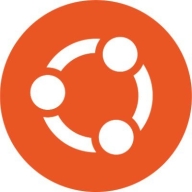

Ubuntu Linux and CentOS are prominent enterprise choices for stable operating systems. Ubuntu seems to have the upper hand due to its active community support, user-friendly interface, frequent updates, and strong ease of use across various deployments.
Features: Ubuntu Linux offers frequent security updates, open-source flexibility, a vast repository of software, and an agile upgrade path for seamless transitions. On the other hand, CentOS is valued for its stability, compatibility with RHEL, and offering a predictable production environment with minimal updates.
Room for Improvement: Ubuntu Linux could benefit from more enterprise-level management tools similar to RHEL distributions. CentOS may need improvements in support and future compatibility with RHEL due to its uncertain update strategy. Both systems could enhance compatibility for running Windows software applications.
Ease of Deployment and Customer Service: Ubuntu is recognized for easy deployment in various environments such as private, on-premises, and hybrid cloud infrastructures, with community support often substituting formal technical support. CentOS, while versatile, relies more on user expertise and community discussions due to its lack of official support.
Pricing and ROI: Both Ubuntu Linux and CentOS are open-source and cost-effective. Ubuntu offers a free, competitive solution with optional paid support, while CentOS eliminates licensing costs. Both are associated with significant ROI due to low operational costs and community-driven resources.
We have saved approximately 50% of our revenue by using CentOS.
It saved a lot of time through troubleshooting, which gives us substantial room for improvement in terms of fixing things.
I would rate the customer support for CentOS a 10 on a scale of 1 to 10.
I've seen many people across the globe interacting, and when users encounter issues, the community provides solutions.
I would rate the documentation about eight in terms of usefulness.
They responded well, understood that the issue was not on my end, and provided a patch within two days.
The community around Ubuntu Linux is beneficial, providing answers to questions and assisting with issues.
Ubuntu Linux has a comprehensive knowledge base for self-help.
CentOS is scalable and user-friendly without requiring complex configurations.
It allows users to scale resources vertically for upgrading hardware and horizontally by adding more servers, making it suitable for modern web hosting and containerized applications.
CentOS's scalability for my organization has handled growth and changing needs smoothly.
In a server environment, it can seamlessly adapt to increased customer demand.
Any Linux is scalable in terms of capacity, and on a day-to-day basis, we use scalability options with the help of Kubernetes clusters.
So far, I do not have any issues related to security in Ubuntu Linux.
CentOS is stable, reliable, flexible, and very useful.
CentOS's simplicity and stability make it easy to use.
I believe CentOS is stable, but we are gradually moving away from it.
The system has been completely stable, which makes it deserve a perfect score.
Ubuntu Linux is extremely stable and maintains uptime effectively.
Ubuntu Linux is generally stable, though there can be occasional issues with new hardware integration.
The documentation and support could be improved, along with compatibility with newer hardware as hardware continually evolves over time.
Kernel parameters, sysctl config details, tuned profiles, process prioritization, optimized disk, and input scheduler choice are all points for performance optimization.
CentOS removed long-term support, and version releases every two to three years are not ideal for production environments because they necessitate frequent updates.
There is a push towards integrating AI into software for various purposes like video and sound processing.
Stability issues occur when integrating new components due to physical or technical challenges.
Unlike CentOS, Ubuntu Linux lacks an easily accessible inbuilt repository where dependencies or packages are easily found.
There was no cost in terms of deploying it or getting the license for it.
CentOS is a free product with free updates.
The enterprise subscription cost is at a certain level, but CentOS saves customers from paying additional money, optimizing costs for enterprises and startups involved in application development.
For an enterprise-wide scalable operating system with professional services, you can select Ubuntu Linux at a reasonable price.
The setup cost is free.
Ubuntu Linux is open-source, leading to cost savings through its free availability.
The update cycle changed when CentOS was prioritized for updates, causing stability issues.
In my experience, the best feature that CentOS offers is the network configuration of a device from the command-line interface, which is exceptionally clean.
The best feature CentOS offers is that it's free.
Ubuntu Linux's open-source nature supports community contributions, bolstering its development and support ecosystem.
Ubuntu Linux supports remote troubleshooting via SSH, allowing connection from anywhere, which is beneficial for troubleshooting server issues.
In terms of security, I am satisfied with Ubuntu Linux and I can rely on its security features more than I can with Windows.
| Product | Market Share (%) |
|---|---|
| Ubuntu Linux | 11.5% |
| CentOS | 4.5% |
| Other | 84.0% |


| Company Size | Count |
|---|---|
| Small Business | 30 |
| Midsize Enterprise | 20 |
| Large Enterprise | 26 |
| Company Size | Count |
|---|---|
| Small Business | 84 |
| Midsize Enterprise | 21 |
| Large Enterprise | 52 |
CentOS offers a stable, secure, and compatible environment with Red Hat packages, providing robust performance and cost efficiency. Its lightweight, scalable design and strong community support make it ideal for handling heavy workloads with limited resources.
CentOS is a popular choice for organizations seeking reliable server and virtualization solutions. Known for its robust stability and security, it offers seamless integration and maintenance. However, after a shift from Red Hat, some challenges emerged, including weak NFS client performance and a more complex interface, which beginners find challenging alongside insufficient documentation. Despite these, CentOS remains a favored option for deploying web applications, server installations, and supporting cloud solutions, thanks to its efficient use in monitoring, databases, and telecommunications.
What are CentOS's key features?CentOS is widely used in industries requiring robust infrastructure, such as web hosting, scientific computing, and telecommunications. In data centers, companies deploy it to support virtual environments, testing, and development. The OS powers business applications, email servers, and cloud solutions, offering a cost-effective alternative to Red Hat.
Ubuntu Linux is an open-source platform known for its robust security, ease of use, and rapid performance. Its lightweight design and comprehensive support system make it ideal for diverse IT environments, providing seamless management and scalability options.
Ubuntu Linux stands out with its open-source nature that allows extensive customization and access to a broad range of free software. It is widely praised for its stability and a vast package repository offering regular updates, enhancing its usefulness across different sectors. The platform is equipped with a lightweight design and excellent community support, making it scalable and easy to manage. While it could improve in areas like Windows software compatibility and user interface refinement, its benefits in enterprise management and development projects are undeniable. Improved documentation, better hardware integration, and enhanced third-party application compatibility are additional focal points to consider.
What are the key features of Ubuntu Linux?
What benefits should be considered from reviews?
Ubuntu Linux is prominently implemented in industries for tasks such as server management, application deployment, and software development. Its resource efficiency and open-source tool compatibility make it a favorite for programming, research, and cybersecurity. Companies frequently use it for web hosting, cloud services, and managing multi-user enterprise solutions.
We monitor all Operating Systems (OS) for Business reviews to prevent fraudulent reviews and keep review quality high. We do not post reviews by company employees or direct competitors. We validate each review for authenticity via cross-reference with LinkedIn, and personal follow-up with the reviewer when necessary.